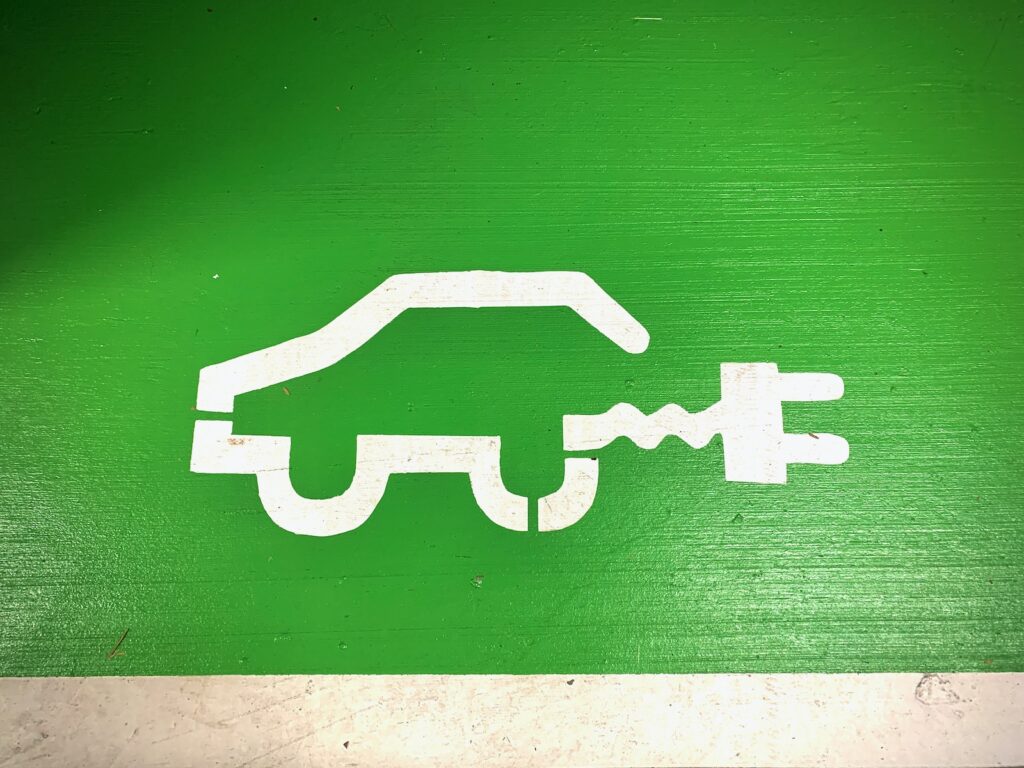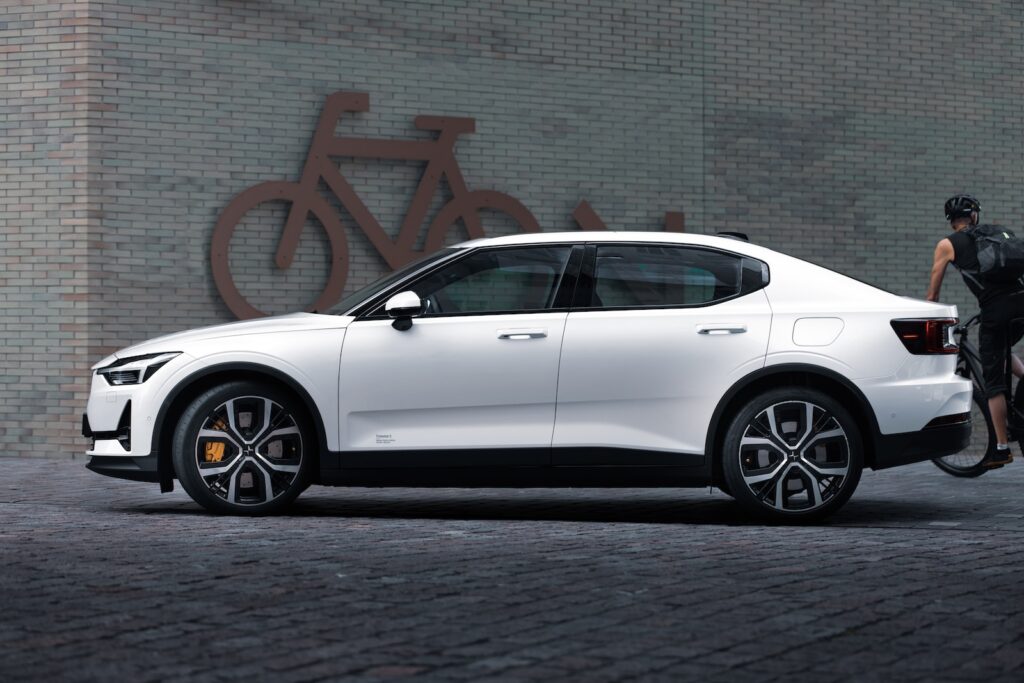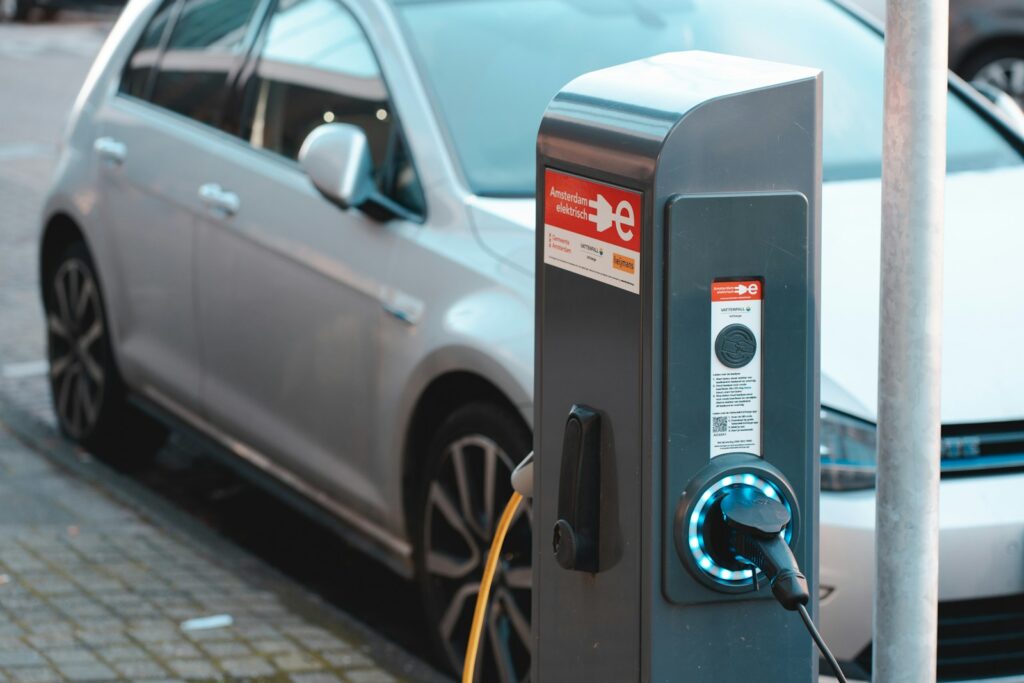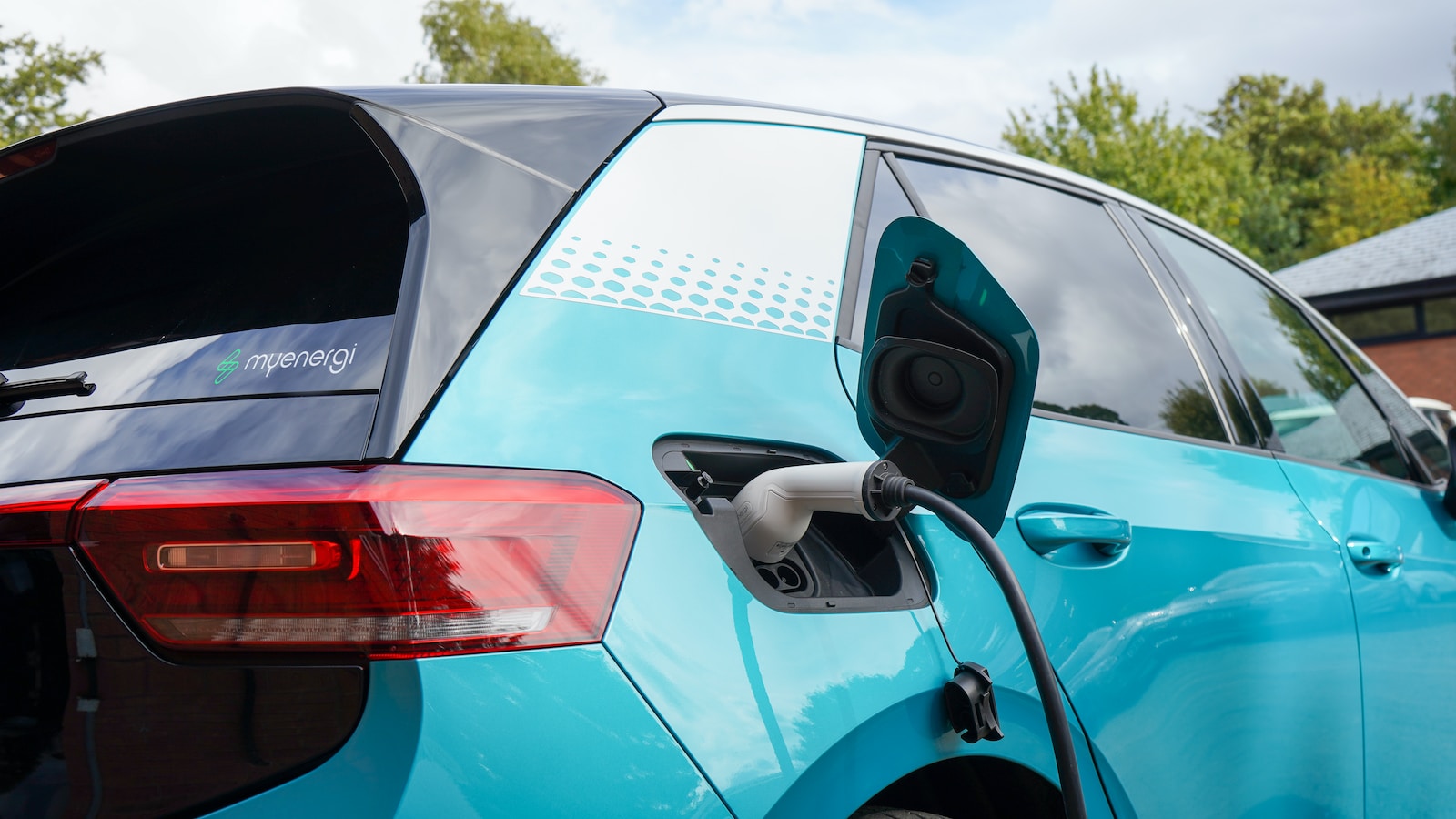Introduction
Picture this: cruising down the highway in a sleek car that hums rather than roars, generating zero exhaust emissions, and passing by gas stations with a satisfied smile. This isn’t just a science-fiction dream but a reality made possible by electric cars.
In recent years, electric cars have risen from an environmental enthusiast’s pipe dream to a viable alternative in the automotive market, prompting many potential car buyers to consider taking the leap towards a greener lifestyle.
As with any significant purchase, it’s important to understand the pros and cons before committing. This is especially true when it comes to making the switch to electric mobility. In this article, we’re going to delve into the heart of the matter, providing a comprehensive overview of the benefits and challenges of going green on the road. It’s vital to understand the impacts – both positive and negative – this decision can have on your wallet, lifestyle, and the environment as a whole.
In case you’ve been living under a proverbial rock, electric cars – also known as EVs or electric vehicles – are automobiles that are propelled by one or more electric motors, using energy typically stored in rechargeable batteries. The global adoption of electric cars has been influenced by a plethora of factors, including concerns about the environment and the fluctuating prices of fossil fuels. With a surge in the demand for electric cars, it’s time to scrutinize what’s behind the hype: the pros and cons of electric vehicles.
Choosing to purchase an electric car is as much a lifestyle decision as it is an economical one. Unlike traditional gasoline-powered vehicles, electric cars represent a significant shift in how we perceive and interact with our vehicles. As such, this decision should not be made lightly. It’s essential to understand not just the immediate benefits, but also the long-term implications and challenges that might arise.
That’s where we come in. This article aims to guide you through the labyrinth of information out there, dispelling myths, highlighting facts, and providing a balanced view on the matter. Whether you’re a green warrior ready to make the switch or a hesitant buyer looking for more information, we’ve got you covered. Be ready to embark on an electrifying journey into the world of electric cars.
Join us as we explore the ins and outs of electric cars, their environmental impact, the cost implications, the challenges they present, and the support available for those who choose to embrace this green revolution. By the end of this article, you’ll be equipped with all the knowledge you need to decide if an electric car is the right choice for you. Buckle up and gear up, because we’re about to set off on quite a ride.
What are Electric Cars?

Imagine a vehicle that’s as quiet as a sneaking cat, gives off zero tailpipe emissions, and can be fuelled from the comfort of your home. No, this isn’t a futuristic fiction; we’re talking about electric cars. In recent years, these sleek machines have transformed from a niche product into a mainstream choice for motorists worldwide. But what exactly are electric cars, and how do they differ from their gasoline-guzzling counterparts?
Electric cars, also known as EVs (electric vehicles), are automobiles that utilize one or more electric motors for propulsion. Unlike traditional vehicles that rely on internal combustion engines fuelled by gasoline or diesel, electric cars draw electricity from a variety of sources. This can range from the grid, which might be powered by fossil fuels, nuclear energy, or renewable sources, to residential solar panels.
The heart of an electric car is its battery. Just like a heart pumps blood to keep a body moving, the battery supplies the electric motor with the energy it needs to turn the wheels. Modern EVs typically use lithium-ion batteries, which are lighter and pack more energy than conventional lead-acid batteries. These batteries are recharged by plugging the vehicle into an external power source, a process known as charging.
- Environmental Benefits: When we talk about the technology behind electric cars, it’s impossible to overlook the environmental implications. One of the most substantial benefits of EVs is their potential to reduce our carbon footprint. Unlike conventional cars that emit a large amount of carbon dioxide and other harmful substances from their exhausts, electric cars produce zero tailpipe emissions. This feature can significantly contribute to mitigating the detrimental effects of climate change and improving urban air quality.
- Energy Efficiency: Electric cars are also incredibly energy-efficient. They convert over 77% of the electrical energy from the grid to power at the wheels, compared to a mere 12-30% for vehicles with internal combustion engines. That’s quite the difference!
- Technological Innovations: The technology behind electric cars is continually evolving, with manufacturers investing heavily in research and development. The fruits of their labour are evident in the advanced battery technology, improved energy efficiency, and the integration of smart features like regenerative braking, which recaptures energy during braking and feeds it back into the battery.
In conclusion, electric cars represent a radical shift in the way we think about and use vehicles. They offer a host of benefits, especially in terms of environmental impact and energy efficiency. However, as with any technology, they come with their unique set of challenges. As we delve deeper into the pros and cons of electric cars, it is essential to understand what they are and how they work.
The Pros of Electric Cars

It’s like stepping into a futuristic film as you shift from a traditional gasoline-powered vehicle to an electric car. With more individuals placing value on sustainability, electric cars are rapidly gaining popularity. However, the allure of these vehicles extends beyond the environmental benefits. The pros of owning an electric car range from cost savings to convenience, providing a unique and enjoyable driving experience.
- Cost Savings – When it comes to fuel and maintenance, electric cars are the equivalent of a frugal aunt who stretches every dollar. Rather than guzzling gasoline, these cars run on electricity. This transition can result in substantial savings on fuel costs over time. Plus, electric cars have fewer moving parts than their gasoline equivalents, leading to less wear and tear. This translates into fewer trips to the mechanic, cutting down on maintenance expenses. In the long run, these savings can outweigh the initial purchase price, making electric cars a smart investment.
- Convenience – Imagine having a petrol station in your garage. That’s the reality for electric car owners. You can charge your car at home, sparing you from waiting in line at the fuel station. Furthermore, public charging stations are sprouting up like daisies in spring, increasing the convenience even further. The ability to charge while you shop or dine makes owning an electric car as effortless as a Sunday morning.
- Smooth and Quiet Driving Experience – Electric cars are like ninjas on the road; they’re remarkably quiet. The absence of engine noise results in a serene driving experience. Furthermore, electric cars offer instant torque, meaning they can accelerate swiftly from a standstill. This feature, combined with their quiet operation, gives electric cars a smooth and sprightly driving performance that’s hard to match.
- Reduction in Carbon Emissions – If traditional cars are party crashers, electric cars are the life of the party. They contribute to the reduction of carbon emissions, significantly impacting the environment. By shifting to electric cars, we’re giving our planet a well-deserved breather. Driving an electric car is a powerful statement that you’re committed to safeguarding our environment for future generations.
Indeed, the benefits of electric cars are impressive. These pros are making electric cars an increasingly popular choice for many drivers, transforming how we perceive transportation. Embracing electric vehicles is like stepping into the future, where technology and environmental consciousness marry to create a sustainable and enjoyable driving experience.
The Cons of Electric Cars

While the benefits of electric cars are numerous, it’s essential to shed light on their drawbacks to paint a complete and impartial picture. From cost considerations to infrastructure challenges, here are some noteworthy cons of electric vehicles.
- Higher Upfront Cost
Electric cars can come with a higher sticker price compared to their gasoline counterparts. The sophisticated technology, battery components, and manufacturing processes involved in creating these green machines are not cheap. Although the running costs may be lower over time, the initial outlay is often a substantial hurdle for potential buyers. It’s like paying for a fancy dinner upfront: it might taste better and be healthier, but it sure does leave a more substantial dent in your wallet.
- Limited Driving Range and Frequent Recharging
The driving range of electric cars is a common concern. While they are improving, most electric vehicles still can’t match the range of a tank of gas. This coupled with the need for frequent recharging, can lead to what is often referred to as “range anxiety”. It’s akin to being on a road trip with an insatiable snack-obsessed toddler; the stops for “refueling” are frequent and sometimes inconvenient.
- Lack of Charging Infrastructure
Depending on where you live, finding a charging station might be as challenging as finding a needle in a haystack. While urban areas are increasingly equipped with public charging stations, rural and remote regions lag behind. It’s almost like being stranded in a desert with a bottle of water, but no bottle opener. The solution is there, but you may struggle to access it.
- Maintenance and Repair Challenges
Maintenance and repair of electric cars can also be a con. Not all mechanics are trained to work on electric vehicles, making it difficult to find suitable repair services. In addition, the cost of replacing the car’s battery can be high. It’s like owning an exotic pet; they’re cool and exciting, but finding a specialized vet can be a real challenge.
In conclusion, while electric cars come with a host of benefits, they also have their fair share of drawbacks. It’s crucial to take these cons into consideration when thinking about making the switch to electric. As with any significant decision, the devil is in the detail, or in this case, under the hood.
Government Incentives and Support for Electric Cars

Just as the adventurer Christopher Columbus had the royal backing of Spain, modern-day explorers of electric mobility are supported by their respective governments. Governments worldwide are playing a pivotal role in the electric vehicle revolution, paving the way towards a greener future through a variety of incentives and supportive policies.
The first aspect to consider is the financial incentives, significantly reducing the upfront cost of electric vehicles. Knowing that the initial cost of EVs can be a deterrent for potential buyers, governments have implemented various policies to sweeten the deal. The most common of these are:
- Tax credits: Many countries offer tax credits that can help offset the higher purchase price of electric cars. In the United States, for example, buyers can receive up to $7,500 in federal tax credits for new electric vehicles.
- Rebates: Some states and provinces offer rebates on top of federal incentives. These rebates can be either point-of-sale discounts or refunds after purchase.
- Exemptions: In some places, electric cars are exempt from certain taxes and fees, such as sales tax, road tax, and congestion charges.
However, financial incentives are not the only form of support. Infrastructure development is equally crucial. Imagine setting off for a long journey, only to realize there are no service stations along the way – a daunting prospect indeed. Recognizing this, governments are actively working on increasing the number of public charging stations, ensuring that electric vehicle owners can recharge their vehicles without inconvenience.
Moreover, government initiatives are not just focused on the present. Many are also setting ambitious goals for the future. Some countries, like Norway and the Netherlands, plan to phase out gasoline-powered cars entirely within the next few decades. They’re setting the pace for a race where the finish line is a world free of automotive carbon emissions.
In conclusion, government incentives and support for electric cars are multifaceted, encompassing financial benefits, infrastructure development, and forward-looking policies. They are shining the green light for a future where electric cars are not just an alternative but the norm.
However, as with any major decision, it’s important to consider all factors. The benefits of electric cars are substantial, but they must align with individual needs and circumstances. So strap in, do your research, and consider whether you’re ready to join the electric revolution.
Are Electric Cars Right for You?

Embracing the eco-friendly shift in automotive technology and choosing an electric car is an exciting decision. However, it requires careful consideration to ensure it aligns with your lifestyle and personal needs. Electric cars are not a one-size-fits-all solution, and there are several factors you should contemplate before taking the plunge.
Firstly, your driving habits and routine should be at the forefront of your decision-making process. Electric cars have a limited range, usually between 100 to 300 miles on a full charge. Hence, if your daily commute or regular trips fall within this range, an electric car can be an excellent fit. However, if you often venture on long road trips, the need for frequent recharging could become a hindrance.
- Availability of Charging Stations: While the infrastructure for electric cars is improving, it’s important to consider the availability of charging stations in your vicinity or along your regular routes. If you’re lucky enough to live in an area with plentiful public charging stations, this might not be a concern. But in more rural or isolated areas, finding a place to recharge can be more challenging.
- Home Charging: One of the primary conveniences of owning an electric car is the ability to charge it at home. Therefore, it’s essential to determine if your living situation can accommodate a home charging station. Flat-dwellers or those living in shared accommodation might encounter difficulties installing one.
- Cost Considerations: Despite the higher upfront cost, electric cars can be more cost-effective in the long run thanks to lower fuel and maintenance costs. However, you need to factor in the initial purchase price and the cost of installing a home charging station. Balancing these initial costs against the long-term savings is crucial in making an informed decision.
Another important aspect to consider is the variety and availability of electric car models. With more automotive manufacturers joining the electric revolution, the range of options is expanding. Whether you prefer a compact city car, a spacious family car, or even a high-performance sports car, there’s likely an electric model to suit your preferences. It’s a good idea to research and test drive few different models before making your choice.
In conclusion, choosing to switch to an electric car is a significant decision that involves evaluating your lifestyle, driving habits, and financial considerations. It is also a decision that can have a substantial positive impact on the environment. By taking the time to weigh the benefits and drawbacks, you can determine if an electric car is the right choice for you.
Conclusion
As we draw our journey to a close on this electrifying road of understanding electric cars and their implications on our lives and the environment, we must take a moment to reiterate some key points that were previously mentioned.
Electric cars represent a paradigm shift in the automotive industry. They are vehicles powered by electricity stored in a rechargeable battery pack, offering zero tailpipe emissions, which contributes to a cleaner, healthier environment.
Their rise in popularity signals a new era in transportation, one that prioritizes ecological sustainability. Yet, like any evolving technology, they come with their unique set of advantages and challenges.
- The pros of electric vehicles are clear. They offer significant cost savings on fuel and maintenance, provide convenience of charging at home or public stations, afford a quiet and smooth ride, and most importantly, reduce our carbon footprint.
- However, the cons can’t be ignored. Electric cars have a higher upfront cost, limited driving range, and require frequent recharging. They also face issues with charging infrastructure in some areas and challenges in finding repair services.
On a brighter note, governments worldwide are providing various incentives like tax rebates and are making efforts to improve the infrastructure for electric cars. These initiatives are crucial in facilitating the adoption of this green technology and help to alleviate some of the challenges.
So, is going green on the road right for you? Well, this decision hinges on several factors. Your needs and lifestyle, availability and features of different electric car models, and perhaps, what could be the most significant factor for many – the cost savings and environmental impact.
Electric cars are more than just a trend; they could be the future of transportation. Or, they could be one of many solutions that help us combat climate change and promote sustainability. The bottom line is that making the switch to an electric car is not just an individual decision, but a collective step towards a greener and cleaner planet.
In conclusion, it’s important to weigh these pros and cons and make an informed decision about going green on the road. Dive into research, engage in conversations, understand your requirements, and consider the broader implications of your choices.
Remember, every small step towards sustainable living counts and your choice of driving an electric vehicle can be a significant stride toward a sustainable future.

